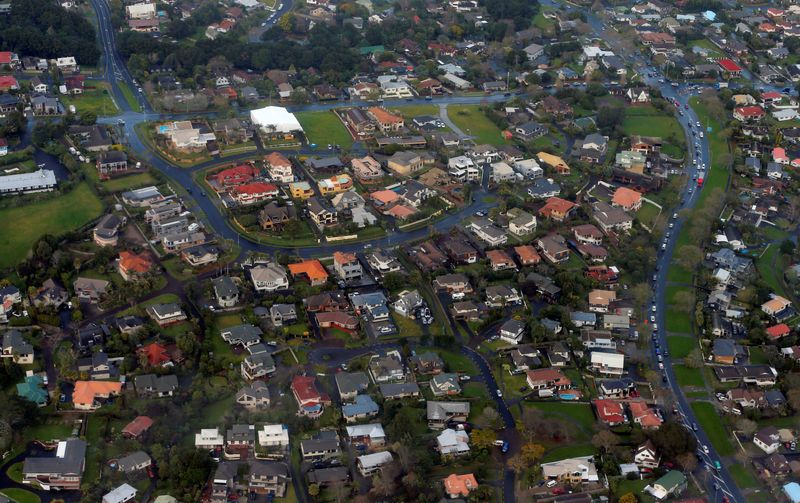By Anant Chandak
BENGALURU (Reuters) - New Zealand house prices are forecast to rise again next year due to an ongoing supply shortage and expectations for interest rate cuts, according to a Reuters poll of property market analysts.
The Reserve Bank of New Zealand (RBNZ) likely ended a 20-month tightening cycle in May after taking the overnight cash rate from near-zero to 5.50%, a campaign that helped bring down the average house price by 15% compared with the price peak in November 2021.
That is short of a roughly 20% correction most property analysts predicted in May following a pandemic-era boom that boosted prices by more than 40%. Prices have started to rise again on returning demand meeting limited available supply.
New Zealand house prices were expected to decline 4.8% this year, the latest Reuters poll of 11 property market analysts taken Aug. 14-28 showed. That predicted decline was about half of the 8.0% fall forecast in a May poll.
Average property prices were then expected to rise 5.0% and 6.0% in 2024 and 2025, respectively, an upgrade from 3.4% and 5.0% in the previous poll.
"Whether or not we're entering a new FOMO-style state in the housing market is yet to be revealed, but our money is on this not being the case, or at least, that it will not persist," said Miles Workman, senior economist at ANZ, referring to the "fear of missing out" that drove a market frenzy during the pandemic.
"But as we get into 2024, we think the reality of higher-for-longer interest rates will set in, and that still-stretched affordability and rising unemployment will culminate in a very subdued pace of expansion in house prices," he said.
A recent Reuters poll of economists predicted the RBNZ was done raising the overnight cash rate and would leave it unchanged at 5.50% until early next year, lowering it to 4.50% by year-end.
While lower interest rates will provide some relief to home buyers, their impact on purchasing affordability among first-time homebuyers was less clear.
There was a near split among 11 analysts who answered an additional question on affordability, with six saying it would improve over the coming year and five saying it would worsen.
The International Monetary Fund said this week that house prices could stabilise next year, but affordability would remain a concern despite the decline in prices as mortgage rates stayed high and low supply added to price pressures.

There was also no respite for potential homebuyers looking to rent instead.
All but one of 11 analysts who answered a separate question said average rents for the rest of 2023 will either rise slightly (6) or significantly (4). Only one said average rents would fall slightly.